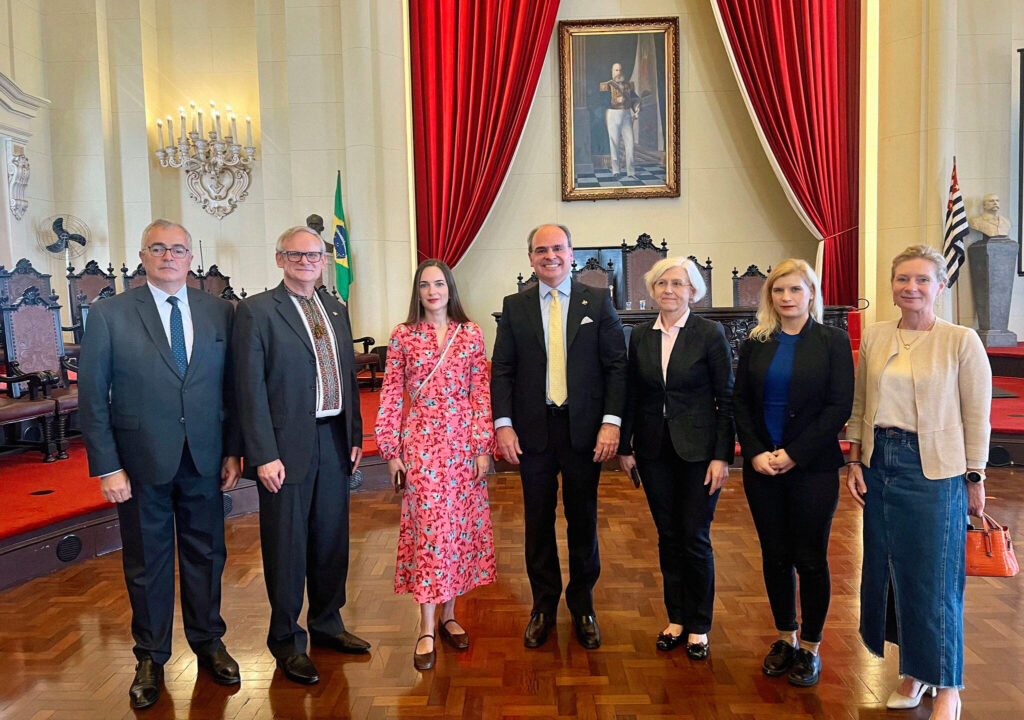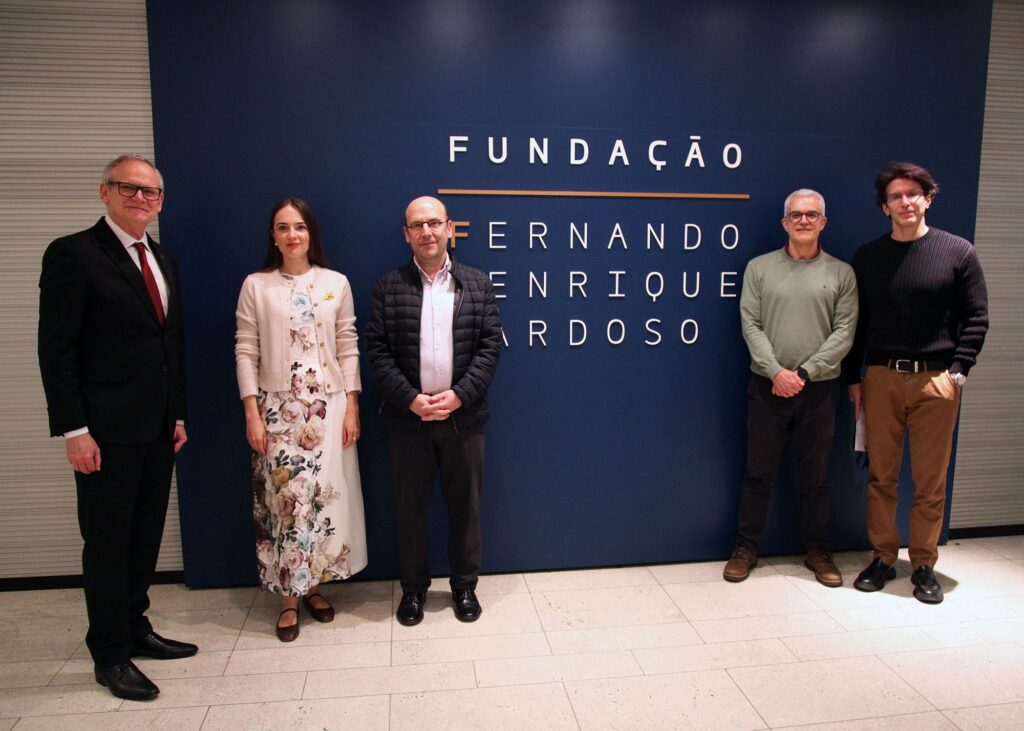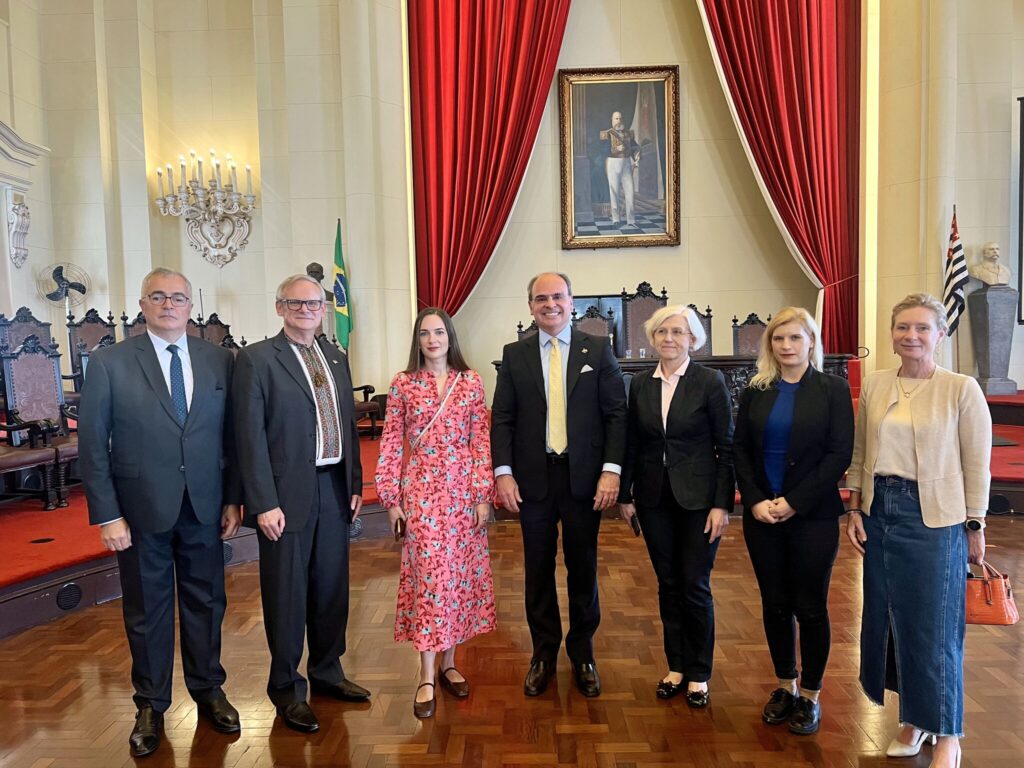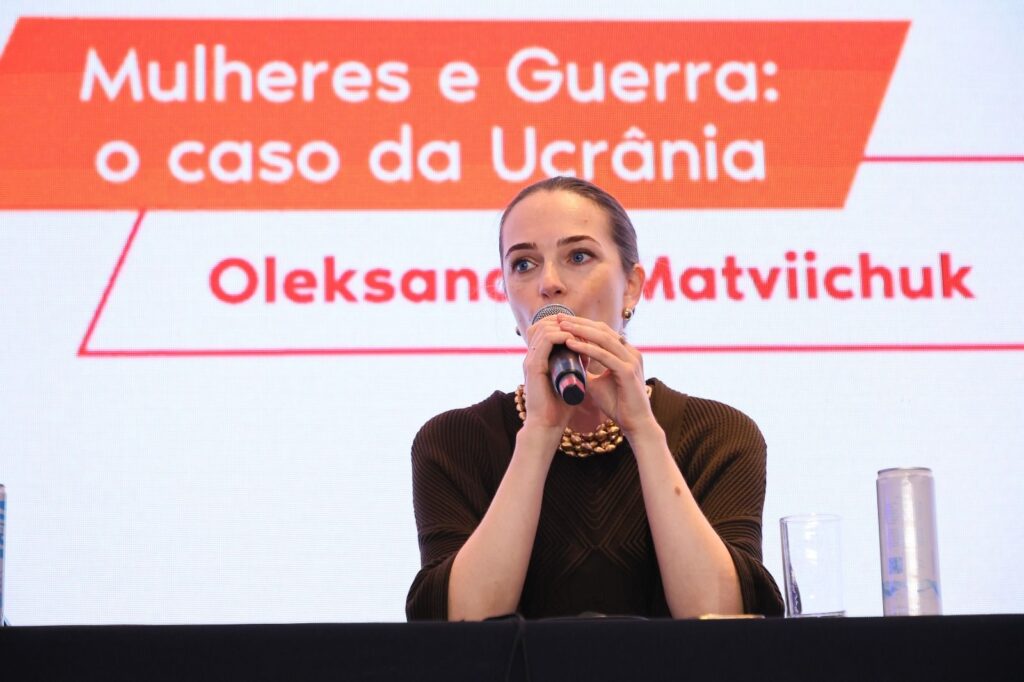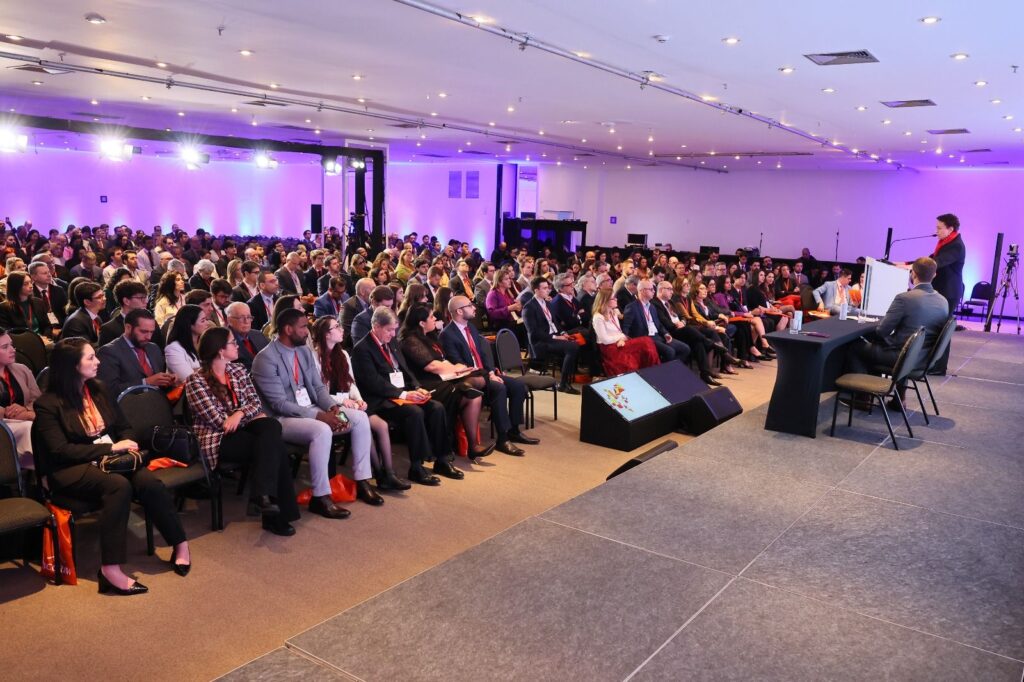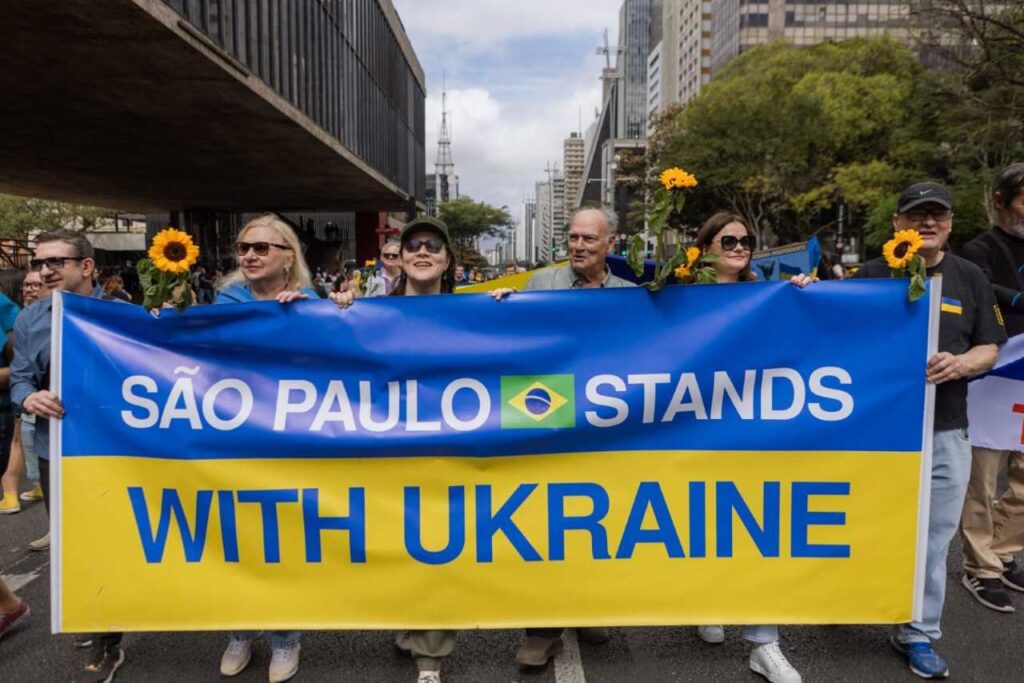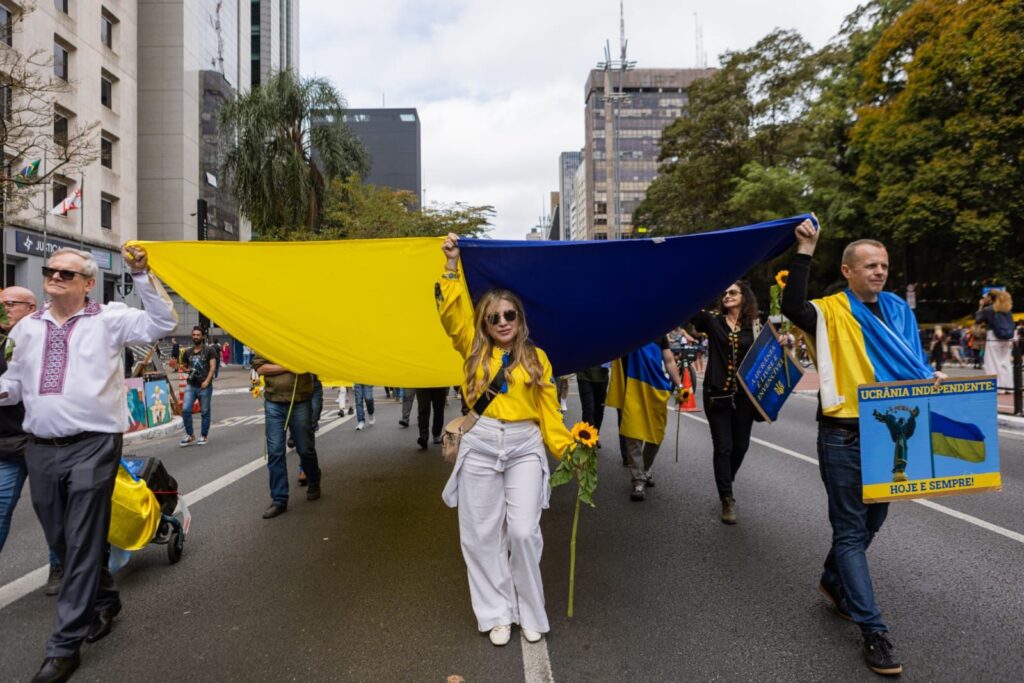«The world based on international law is collapsing before our eyes». Oleksandra Matviichuk gave a series of public speeches in Brazil
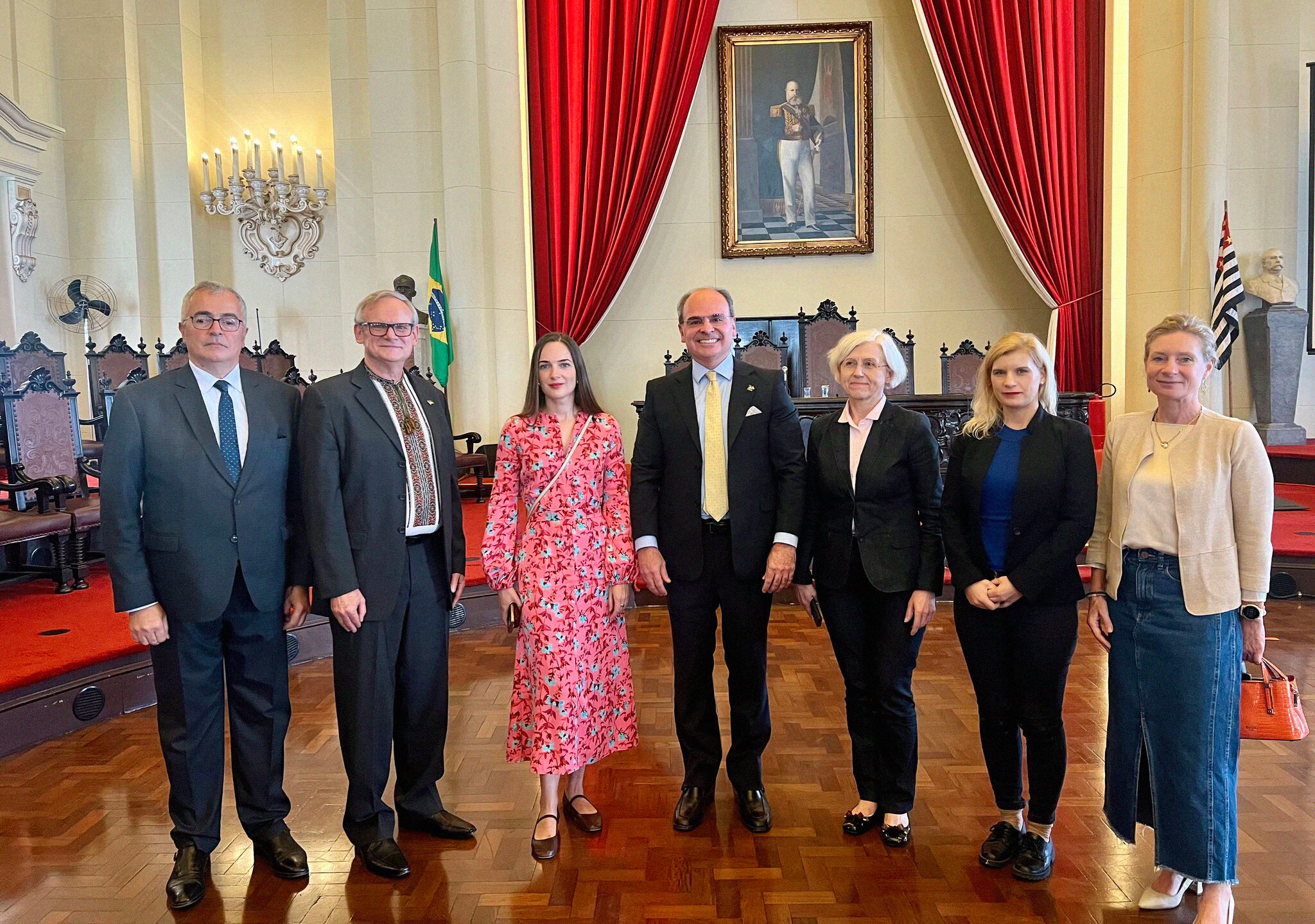
On August 26-28, the head of the Center for Civil Liberties, Oleksandra Matviichuk, made a working visit to Brazil, during which she gave a series of public speeches, meetings, and lectures on international law, the crime of aggression, and the protection of human rights.
The first important stop on the visit was a reception at the Fernando Henrique Cardoso Foundation, where Ms. Matviichuk presented the activities of the Center for Civil Liberties and spoke about the challenges Ukraine faces during the Russian aggression.
The research center is named after Fernando Henrique Cardoso, a Brazilian sociologist and statesman who served two terms as President of the Federative Republic of Brazil from 1995 to 2003. The center studies ways to overcome challenges to development and democracy in Brazil.
Oleksandra shared her work on gathering evidence, identifying the perpetrators, and her relentless pursuit of justice. She welcomed the recent decision by the Council of Europe to establish a special tribunal to investigate the crime of aggression against Ukraine. This is a bold call to ensure that, in the face of horror, torture, and disappearances, faith in human dignity is not lost. The speech emphasized the importance of international solidarity with victims of war crimes and the need for continued advocacy at the academic and political institutional levels.
Later, Oleksandra took part in an international seminar organized by the Brazilian Institute of Criminal Sciences (IBCCRIM). The organizers noted the high level of discussion and the importance of continuing professional legal dialogue on documenting war crimes and mechanisms for bringing perpetrators to justice. Matviichuk’s speech was one of the key events of the seminar.
On August 28, in the Great Hall of the Faculty of Law of the University of São Paulo, Oleksandra gave a lecture to students, teachers, and diplomats. Representatives of the Consular Corps in São Paulo, including the Consul of Ukraine Jorge Rybka, and diplomats from several European countries attended the event, which was moderated by Professor Paulo Borba Casella.
In her speech, Matviichuk emphasized that the world based on international law is “collapsing before our eyes” and that the current conflict is a war between the two systems — democracy and authoritarianism. She called for those responsible for crimes of aggression to be held accountable and expressed the opinion that a special court for crimes of aggression should be established so that justice would no longer be “the privilege of the victors.”
In her speeches and during discussions, Matviichuk repeatedly mentioned the unfulfilled promises of the 1994 Budapest Memorandum, calling it a “disgrace” for the signatory countries. She explained that what is important for Ukraine is not only a formal document, but also real security guarantees that could prevent further escalation.
During the meetings, local research was also discussed, in particular the works of Dr. Felipe Alamino, author of a book on the annexation of the Crimea and the concept of aggression in international law (Anexação da Crimeia: o conceito de agressão no direito internacional). His work and efforts to study the historical and legal aspects of the conflict were honored as part of the local legal discourse. In addition, the role of the Ukrainian diaspora in Brazil and organizations that support human rights initiatives was emphasized.
Oleksandra Matviichuk’s visit to Brazil brought together academics, human rights institutions, and diplomats around the themes of accountability for crimes of aggression, the protection of human rights, and the strengthening of international law. In her speeches, she called for international solidarity and active support for justice as a tool to prevent further crimes and new conflicts.
The result was new opportunities for dialogue, support for initiatives to document war crimes, and calls for the creation of effective international justice mechanisms.

